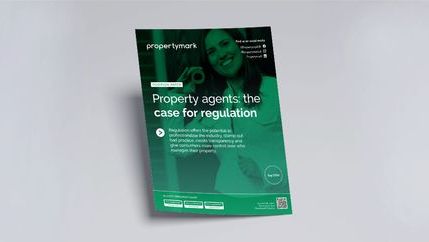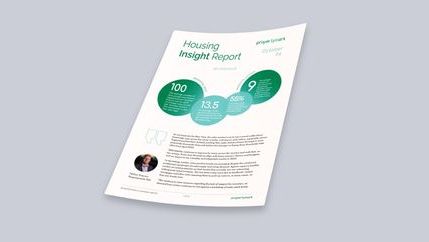
A sector dominated by individual landlords
94% of the sector is made up of small portfolios, with nearly half of landlords owning just one property, and a further 39% owning two to four properties. This reflects a sector largely shaped by smaller-scale investors rather than institutional or large-scale operators.
The findings suggest that for most landlords, property investment remains a secondary source of income or a long-term strategy for financial stability, such as retirement planning. However, the report also hints at the vulnerabilities these landlords face amidst ongoing regulatory changes and economic pressures.
In the report, particular attention is given to the diversity of single property landlords in regard to both age and gender; 43% of single property landlords were aged 55 or younger and 50% of individual landlords were identified as female, an increase of 6% since 2021.
Most tenant's are happy, but challenges remain
A key takeaway from the survey is that 82% of private renters expressed satisfaction with their current accommodation. This high level of satisfaction suggests that the PRS is meeting the needs of many households, offering flexibility and a range of housing options.
Despite this, issues with housing quality persist. Private renters are significantly more likely to experience issues such as damp and disrepair compared to those in other housing tenures. This disparity highlights the need for continued focus on improving property standards within the sector, particularly in light of increasing scrutiny on housing conditions.
This sentiment has been echoed through our position paper on the case for regulation which outlines measures that should be taken to enhance sector credibility such as introducing a code of practice, amending outdated acts such as The Estate Agents Act 1979 and introducing minimum operating requirements.
Property agents: the case for regulation
Regulation offers the potential to professionalise the industry, stamp out bad practice, create transparency and give consumers more control over who manages their property. Minimum qualification requirements and statutory Code of Practices to be adhered to by all letting and managing agents in England and sales agents across the UK should be introduced.
Landlords adapting to a changing landscape
Legislative changes, such as the reduction of tax relief for mortgage interest and the introduction of energy efficiency requirements, have increased operational costs for many landlords. As a result, some are reconsidering their portfolios, with a portion indicating they plan to sell properties in the near future.
Responses given by landlords in the report were consistent with Propertymark’s understanding that increasing costs drive landlords to increase rents, with 30% of those asked stating that mortgage costs, lender requirements or other non-mortgage costs were the reasons for the increase.
Propertymark continues to work hard to equip agents for the changes, whilst ensuring that governments understand that a mass landlord exodus will be difficult to undo.
Agent regulation is still on the UK Government agenda, confirms Housing Minister
With all eyes on the Renters’ Rights Bill, discussion around the regulation of property agents (RoPA) has taken a back seat. However, responding to a question in Parliament, Housing Minister Matthew Pennycook MP stated that reforming the sector included raising professional standards amongst agents to protect consumers and defend the reputation of good agents from the actions of rogue operatives.
This adjustment within the sector comes at a time when demand for private rentals remains high. A growing population and increasing challenges in the owner-occupied and social housing sectors mean that the PRS will continue to be a vital component of England’s housing market, a sentiment supported by our latest housing insight report, which notes that demand for private rented accommodation continues to outstrip supply, with the average number of applicants per member branch still hitting around 9 people for each available property in October 2024.
Housing Insight Report: October 2024
As we head into the New Year, the sales market is set to see a trend unlike those historically seen across the winter months, with buyers and sellers, especially across England and Northern Ireland, pushing their sales and purchases through to save potentially thousands of pounds before the changes to Stamp Duty thresholds take effect from April 2025.
The Future of the Private Rented Sector
The English Private Landlord Survey 2024 paints a picture of a sector at a crossroads. With the Renters Rights Bill progressing at pace it is imperative that agents understand the changes the Bill will bring and to disseminate this information to your landlords — our Toolkit provides information, guidance, training, and handy templates to help you prepare for the future as well as resources to contact your MP to inform them of your concerns.
There is a need for policies that support landlords in delivering high-quality, sustainable housing, while also ensuring tenants can rely on safe and secure homes. We will continue to advocate for balanced regulations and support members in navigating this complex landscape.








